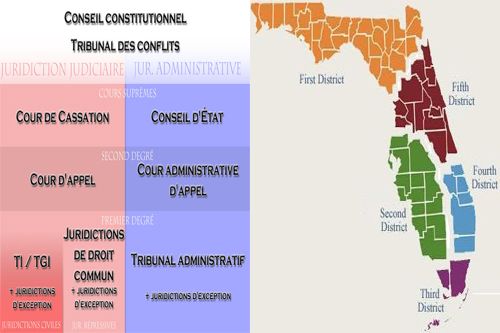Jurisdiction is the right of an authority to review a certain case and apply the suitable law for it. From the Latin root words “iuris” and “dicere,” it is loosely translated as “to speak the law,” thus the legal body has this right to interpret and pass necessary decisions. Types of jurisdictions are usually exercised in countries which require district or local courts due to the number of its states, and these countries usually follow a federal government, such as the United States, Australia, and Germany.
The federal court has two types of jurisdiction: original or appellate. Original jurisdiction is the right of a court to hear a certain case first. If the case only concerns the law of a state, the district court has the right to review it firsthand. Thus, district courts are said to have original jurisdiction to all cases. However, when the case involves higher officials or citizens suing their state, the jurisdiction is passed to the higher or supreme court through the appeals court. This is where an appellate jurisdiction is applied. The appeals court gives its review regarding the case to the supreme court, and the supreme court either defers to its findings, or review the district court’s rulings.



